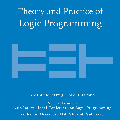We study a variation of the Stable Marriage problem, where every man and every woman express their preferences as preference lists which may be incomplete and contain ties. This problem is called the Stable Marriage problem with Ties and Incomplete preferences (SMTI). We consider three optimization variants of SMTI, Max Cardinality, Sex-Equal and Egalitarian, and empirically compare the following methods to solve them: Answer Set Programming, Constraint Programming, Integer Linear Programming. For Max Cardinality, we compare these methods with Local Search methods as well. We also empirically compare Answer Set Programming with Propositional Satisfiability, for SMTI instances. This paper is under consideration for acceptance in Theory and Practice of Logic Programming (TPLP).
翻译:我们研究稳定婚姻问题的变异性,即每个男女将自己的偏好作为可能不完整的偏好列表来表达,并包含各种联系。这个问题被称为“带和不完全偏好的稳定婚姻问题 ” ( SMTI ) 。我们考虑了SMTI、Max红衣主教、性别平等与平等等三种优化模式,并用经验比较了以下方法来解决这些问题:答案设置、约束性编程、 Intger线性编程。对于 Max Knightity,我们将这些方法与本地搜索方法进行比较。对于SMTI 的例子,我们也从经验上将“回答设置”方案与“前景可满足性”比较。本文正在考虑在逻辑编程的理论和实践(TPLP)中被接受。





